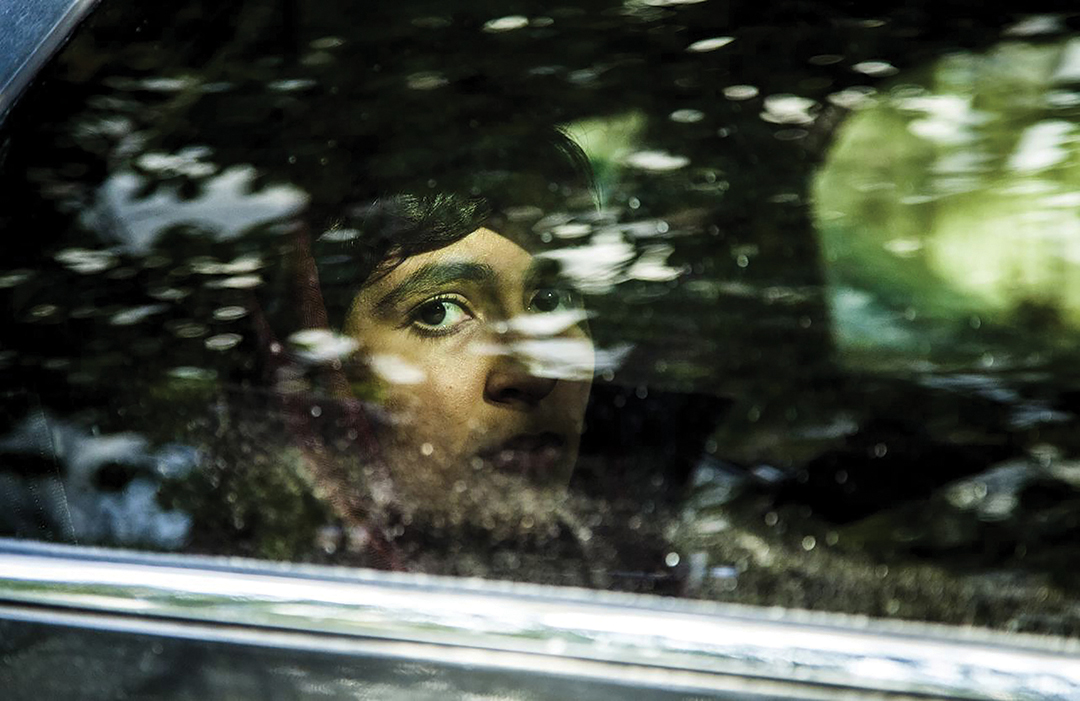Women Whom Oppressed: Sadaf Foroughi
The 17th !f Istanbul Independent Film Festival is hosted by various movie theaters around Istanbul between February 16 and 26 with the theme “To Life!” Screening 111 movies by 120 directors from 36 countries,
the festival’s most exciting section is – as always – inspired. Ava, the first feature-length film by Iranian director Sadaf Foroughi, is one of the highlights of this section. We had the chance to talk to Foroughi before our days are filled with love of cinema.
Sadaf Foroughi was born in Tehran in 1976, a few years before the revolution. Raised in a country and an era dominated by war, Foroughi took ballet and piano lessons with the support of her mother to escape the harsh reality. After receiving her master’s degree in Film Studies at University of Provence in Marseille,
she directed a number of short films including Feminin, Masculin (2007), The Kid and the Kite (2009), and La Derniere Scene (2011). She completed Ava, her first feature-length film last year.

A movie of the recently popular “coming of age” genre, Ava is about the adolescence of a young girl in Tehran. After Ava, a high schooler with a deep passion for the violin and music in general, enters puberty, her mother becomes more protective, which causes Ava to question life. This young girl, who strives to make her voice heard in a patriarchal society, is named after the Persian word for “sound” which bears a symbolic meaning in the story. According to Foroughi, Ava aims to cry out the unheard voice of all oppressed women.
Though it features some autobiographical elements, Ava is not a documentary and all characters are fictional. “But the whole movie is based on my experiences as an observer and simultaneously an observed,” says Foroughi. When we ask her how she decided to make films and direct her own, she replies, “I live in harmony with my imagination, where there is no limitation. Since I am not so much interested in realism, I use my dreams to recreate the world around me. This world reflects my feelings and my struggles with my existence. I believe that if we are faithful to ourselves, the rest is easy.” She continues with a quote from Bach, “You just have to hit the note at the right place, and the organ does the rest.”

The entire movie is filmed in Tehran, and the cast is Iranian. We ask her how she chose Mahour Jabbari, who plays Ava. “I was looking for a unique facial expression which I found in Mahour’s face.” Of course, the fact that Mahour could play the violin was a huge advantage. We also learn that – just like Ava – Foroughi was interested in music when she was young, and played the piano.
Feminism is a recurring theme in Foroughi’s works. Initiated as a reaction to the Harvey Weinstein scandal in 2017, the global #MeToo movement invites us to question the future of women in the movie industry. Foroughi emphasizes the overwhelming number of male directors who are accepted to festivals and awarded at ceremonies, and continues, “But I try to remain optimistic.”

The entire movie is filmed in Tehran, and the cast is Iranian. We ask her how she chose Mahour Jabbari, who plays Ava. “I was looking for a unique facial expression which I found in Mahour’s face.” Of course, the fact that Mahour could play the violin was a huge advantage. We also learn that – just like Ava – Foroughi was interested in music when she was young, and played the piano.
Feminism is a recurring theme in Foroughi’s works. Initiated as a reaction to the Harvey Weinstein scandal in 2017, the global #MeToo movement invites us to question the future of women in the movie industry. Foroughi emphasizes the overwhelming number of male directors who are accepted to festivals and awarded at ceremonies, and continues, “But I try to remain optimistic.”